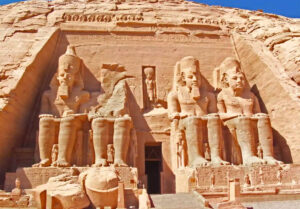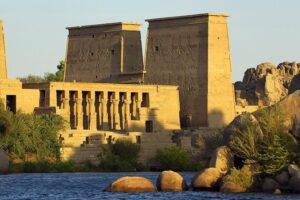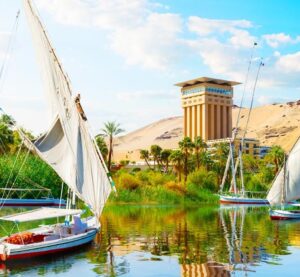Egypt, a land of ancient wonders and breathtaking natural beauty, is increasingly recognizing the imperative of sustainable tourism. With its rich cultural heritage, diverse ecosystems ranging from deserts and oases to the Red Sea’s coral reefs, and the iconic Nile River, the country is uniquely positioned to embrace practices that preserve its treasures for future generations while maximizing benefits for local communities. The shift towards sustainable tourism in Egypt is not merely a trend but a strategic necessity for long-term growth and environmental protection.
National Strategy for Sustainable Tourism 2030
One of the cornerstones of Egypt’s sustainable tourism efforts is its National Strategy for Sustainable Tourism 2030. This ambitious plan aims to significantly increase tourist numbers while embedding sustainable practices across all aspects of the tourism sector. Key pillars of this strategy include institutional and legislative reform, enhancing the competitiveness of the Egyptian tourist destination, achieving economic objectives, promoting social participation, leveraging technology, and critically, maintaining environmental balance and the sustainability of tourism and archaeological activity. This holistic approach signals a strong governmental commitment to transforming the industry.
Eco-tourism and Nature-Based Experiences
A significant focus of sustainable tourism in Egypt is on eco-tourism and nature-based experiences, particularly in its protected areas and unique natural landscapes. The Ministry of Environment, in collaboration with the Ministry of Tourism and Antiquities, is actively working to develop and enhance nature reserves, ensuring that tourism activities within these sensitive areas are regulated and managed responsibly. Initiatives like the “ECO EGYPT” campaign aim to promote ecotourism locally and internationally, showcasing Egypt’s diverse natural heritage and the unique cultures of local communities residing in these regions. For instance, the recent eco-tourism development project in El-Gharqana, a Bedouin village in Sharm El-Sheikh, exemplifies this commitment by integrating local communities into sustainable tourism activities while using eco-friendly architecture.
Eco-lodges and Green Accommodations
Eco-lodges and green accommodations are at the forefront of Egypt’s sustainable tourism movement. These establishments prioritize minimizing environmental impact through practices like using solar energy, conserving water, reducing waste, and sourcing food locally. Examples such as Adrère Amellal and Taziry Ecolodge in Siwa Oasis are renowned for their off-grid living, natural construction materials, and commitment to preserving the unique cultural and environmental integrity of their locations. Other eco-certified properties are emerging across the Red Sea coast and other destinations, signaling a growing demand and supply for environmentally conscious lodging. The government is also encouraging hotels nationwide to adopt clean energy, with a significant percentage already utilizing it, and linking green tourism standards to hotel ratings.
Local Community Involvement
The involvement and empowerment of local communities are crucial to sustainable tourism in Egypt. Many initiatives focus on ensuring that tourism directly benefits residents, providing them with economic opportunities and fostering a sense of ownership in heritage conservation. This includes supporting local artisans by encouraging tourists to purchase handmade crafts, promoting locally guided treks in Nubian villages, and developing tourism models that integrate community participation. By respecting cultural norms and promoting ethical tours, sustainable tourism in Egypt seeks to create a more enriching experience for travelers while simultaneously uplifting the livelihoods of host communities and preserving their cultural identity.
Challenges in Sustainable Tourism
However, Egypt’s journey towards comprehensive sustainable tourism is not without its challenges. These include the need for continuous infrastructure improvement in some tourist areas, enhancing tourism awareness among workers to improve guest services, and overcoming funding limitations for conservation projects. Historically, rapid and often unregulated coastal development, particularly in the Red Sea region, has led to environmental degradation, including damage to vital coral reefs. Addressing these legacy issues and ensuring that future development adheres to strict environmental standards are critical. Moreover, striking a balance between attracting a high volume of tourists and maintaining the fragile ecosystems and historical integrity of sites remains a delicate act.
Despite these challenges, Egypt is demonstrating a clear commitment to fostering sustainable tourism. Through strategic national plans, collaborative efforts between government bodies and international organizations, the rise of eco-friendly accommodations, and a growing emphasis on community involvement, Egypt is striving to position itself as a leading destination for responsible and transformative travel experiences. The aim is to ensure that its unparalleled natural and cultural heritage remains vibrant and accessible for generations to come, creating a legacy where tourism contributes positively to the nation’s environmental, social, and economic well-being.
Contact us for your Egypt Trip











